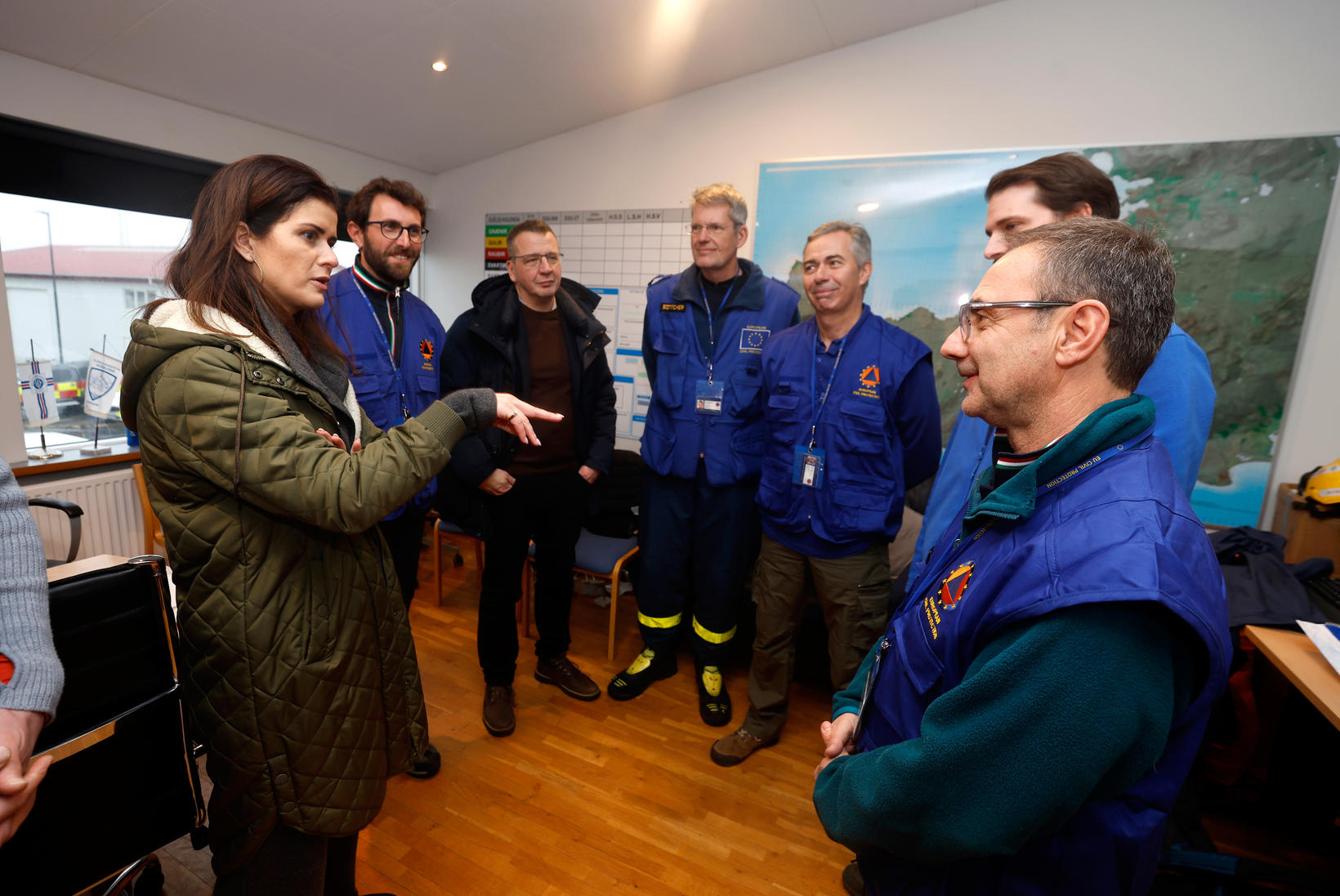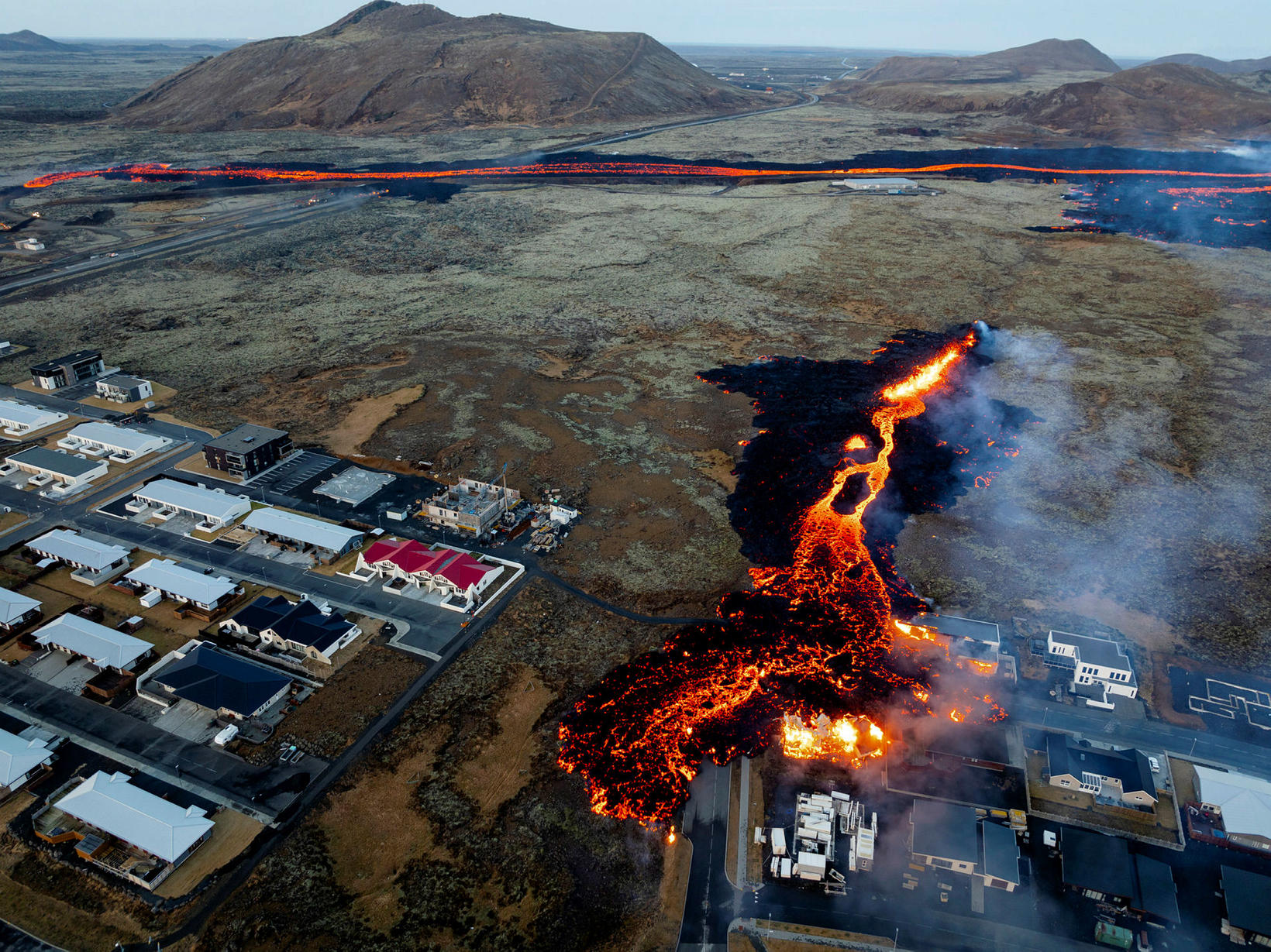Very expensive, but not over ISK 100 billion
Gylfadóttir talking to foreign specialists in crisis management in Grindavík last November. mbl.is/Eggert Jóhannesson
The total amount of measures taken by the government due to the uncertainty in Grindavík is not known as the exact details are not yet established.
The Minister of Finance and Economic Affairs, Þórdís Kolbrún R. Gylfadóttir, says the measures will affect the government’s debt. The amount will be around ISK ten billion, but not more than ISK 100 billion.
Could be in the ISK 50 or 60 billion ballpark
“It’s not clear whether it’s 50 or 60 billion, but it’s always a big amount. But we can handle it, and it’s important to work hard and do everything we can to minimize the negative impact of these measures on inflation developments and prospects, the housing market, the government, and the economy as a whole,” the minister tells us.
“There are a lot of things to consider and that’s why we need to take the time to do it in a public way.”
You mentioned 50-60 billion, so are you making sure that the amount does not exceed 100 billion?
“I assume that this part of the measures and responses to this situation will not exceed 100 billion,” Gylfadóttir says.
It makes it clear that the measures will affect the government’s debt.
It’s not a question of what we can bear, it’s how we do it.”
It's been just over a week when hot lava flowed into Grindavík and three houses were completely totaled. It is, however, the movements in the earth's crust, with fissures and cracks, that have caused the most damage in the town. mbl.is/Kristinn Magnússon
Gylfadóttir says that a tremendous amount of work has been done in the government and ministries regarding the action package, so that a bill can be submitted to Parliament in early February. She says she wants to meet that timeframe and says that the government will make every effort to do so.
She also says that a formal consultation will be held with representatives of all parties in the parliament, which will hopefully both close the work that is being done and make it possible to think about things that might otherwise come up later in the procedure.
On the subject of the Treasury’s resilience, the minister says that its very strong position has been used during the pandemic not only to mitigate the blow but also to invest in what came later, so that it was possible to get started immediately. She says that it has been successful, for example, when it comes to the tourism industry, but that huge amounts of money have been released from the Treasury.
“It’s not a question of what we can bear, but how we do it, what is responsible and sensible to do in the current situation.”
We owe people to look at the long term
She says that the state budget is the only thing that matters, but the income and the debt are also important, as well as the resources that will be used and the terms of use, both in the short term and in the medium and long term.
“We owe it to people to look at the long term, and that’s why it’s sometimes a little tricky, but it’s extremely important to create the space to do it – that’s my duty. That’s why it’s important that it’s thorough and that it’s thought through.
Nature does its part and we can’t control it, but we can control our response. We’re making it very clear that when 1% of the population is caught up in a disaster and is in a lot of uncertainty, the other 99% will share that,” she says.
“We are in a situation where we are trying to control inflation, and this puts a dent in the bill. It is already in place, but then we need to do everything we can to minimise the negative impact of this.”










